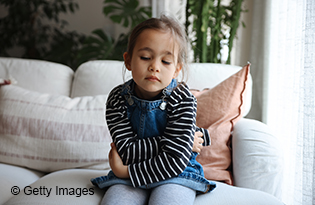Getting the scoop on your child's poop
7/10/2025 by Grant VanNess, M.D.

What is constipation, and why does it happen?
Constipation is a term used to describe having delayed and/or infrequent bowel movements that cause large, hard and painful stools. While there is no firm number for how often a child should poop per week, a frequency less than three times per week is often associated with hardening of stools and subsequent constipation symptoms.
For most children, constipation is not due to a problem with the function or structure of their gut but rather a combination of poor diet and voluntary withholding. Voluntary withholding is when a child ignores or fights the urge to poop for a variety of reasons, including anxiety over pooping in public, embarrassment to poop in front of friends at school, and poor attention span with a preference to play instead of using the bathroom. If these normal urges are ignored, stool builds up and hardens with time. This situation worsens when children fail to drink enough water or eat adequate amounts of fiber, which are both essential to maintaining soft, painless stools.
How is constipation diagnosed?
Constipation can be diagnosed by scheduling a visit with your healthcare clinician to discuss your child’s bowel habits, along with a general physical examination. Often, a hard stool can be felt when pushing on your child’s belly. Sometimes, your clinician may also recommend an X-ray image of the belly, though this step is often unnecessary to diagnose constipation. Depending on the severity of your child’s constipation, your clinician may also recommend and perform a rectal examination to both feel for hard stool and make sure the anal muscles are functioning normally. This exam can be very important for both diagnosis and treatment.
How is constipation treated?
Phase 1: Cleanout
Treatment starts with high doses of medications called laxatives to help your child poop and clear out the hardened, built-up stool. Some laxatives, including MiraLAX and magnesium citrate, work by hydrating the stool, almost like a sponge filling with water, resulting in mushy poop. Others, such as Ex-Lax and Senna, work by telling the large intestines (also called the colon) to squeeze and push out stool. We often call this the combination of “mush” and “push.”
While these medications are taken by mouth, children often need rectal medications as well, called suppositories and enemas. Rectal medicines both soften and lubricate the hardest poop stored in the rectum (the last part of the colon), allowing for less painful passage of stool. This phase often takes 2-3 days.
Phase 2: Maintenance
Following a successful cleanout, your child’s colon needs time to regain its strength. This can take months, if not years, depending on the severity of constipation. During the maintenance phase, your clinician will ask your child to continue taking oral laxatives at lower doses every day and will adjust the dosage to maintain easy-to-pass stools. Making lifestyle changes is another important aspect of maintenance. Be sure your child is drinking plenty of water and eating foods rich in fiber. Ask your clinician about starting a fiber supplement if needed. It is also important for your child to sit on the toilet properly with their feet supported and for them to dedicate time every day to sitting on the toilet, regardless of the urge. The best time is after meals.
Phase 3: Resolution
After 3-6 months of a successful maintenance phase of treatment, your clinician may give recommendations on how to stop laxative therapy completely. Again, it will still be important to maintain those healthy lifestyle changes. Please know that MiraLAX is non-addictive and non-habit forming, so long-term use is safe and approved.
What is the prognosis for constipation?
In most cases, constipation is treatable, but it requires consistency and a long-term plan. There is often no quick fix, so be prepared to support your child in learning how to get and stay regular.
Grant VanNess, M.D., is a former resident in the Department of Pediatric and Adolescent Medicine at Mayo Clinic in Rochester. He started a fellowship in pediatric gastroenterology, hepatology and nutrition this month.
